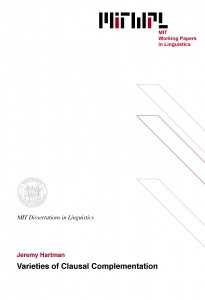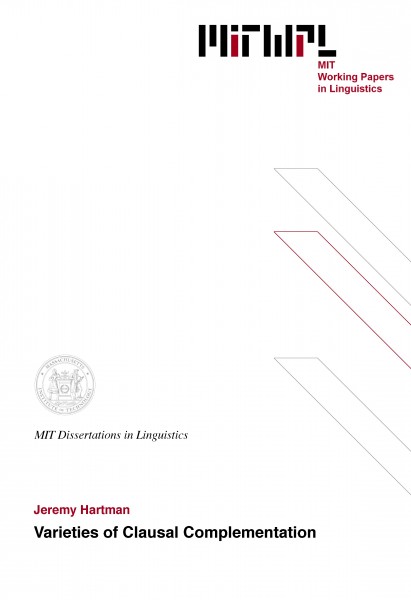Varieties of Clausal Complementation
Jeremy Hartman, 2012
This thesis argues that clausal arguments of mental-state predicates divide into two main types: those that express the content, or “subject matter” of the mental state, and those that express the cause of the mental state. The central theoretical claim is that this dichotomy corresponds to a difference in syntactic structure. I propose that these different structures derive from an operation of promotion to subject position that is constrained by two factors. First, it is constrained by syntactic category: DPs, but crucially not CPs, are eligible for promotion, and I argue that clauses in subject position are in fact DPs. Second, it is constrained by locality: even among DPs, only the highest DP is eligible for promotion. I explore a range of cases where this locality constraint is not met—i.e., cases of “argument intervention” in a variety of constructions. Finally, I discuss how these constraints interact to derive the realization of clausal arguments and the syntactic properties of the predicates that select them.

